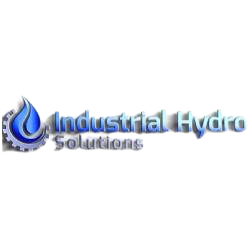Water Purification Methods: Which Are Better for the Environment?

Posted on July 27th, 2023.
Water is a precious resource that sustains life on our planet. As industrial activities and urbanization continue to expand, the demand for clean and safe water becomes increasingly important. This has led to the development of various water purification methods to ensure that water sources remain untainted and suitable for consumption.
In this blog post, we will explore different water purification methods, their impact on the environment, and which ones are considered better in terms of sustainability.
Introduction to Water Purification Methods
Water purification methods are essential to remove contaminants and impurities from water sources, making it safe for human consumption and industrial processes. With advancements in technology and environmental concerns, several purification techniques have emerged to cater to different needs and demands. These methods can generally be classified into physical, chemical, and biological processes.
Physical Water Purification Methods
Physical water purification methods involve the removal of impurities without altering the water's chemical composition. One of the most commonly used physical methods is filtration. In filtration, water is passed through various materials like sand, gravel, or activated carbon to trap and remove particles and pollutants. This process is effective in eliminating larger impurities, but it may not be sufficient to purify water completely.
Reverse osmosis is another widely used physical method that employs a semi-permeable membrane to remove dissolved solids, minerals, and even some harmful chemicals from water. Although it is highly effective, the process requires significant energy consumption, making it less environmentally friendly.
Chemical Water Purification Methods
Chemical water purification methods involve the use of chemical agents to neutralize or remove contaminants from water.
Common chemical methods include:
Deionization is a process that involves removing dissolved ions from water, typically through the use of ion-exchange resins or other chemical processes. It is a common method used to produce high-purity water for industrial applications, laboratories, and other specialized uses. By employing ion-exchange resins, smart deionization can effectively remove various ions, such as calcium, magnesium, sodium, and other charged particles from the water, resulting in a high-quality and purified water output.
Chlorination is a prevalent chemical method used in water treatment facilities. It disinfects water by killing harmful bacteria and microorganisms. However, chlorination may lead to the formation of disinfection byproducts (DBPs) that can be harmful to the environment and human health.
Ozonation is another chemical purification method. It uses ozone gas to eliminate bacteria, viruses, and organic pollutants. Ozone is a powerful oxidizing agent and leaves no harmful residues. However, the production of ozone requires energy, and its use can result in some level of air pollution.
Biological Water Purification Methods
Biological water purification methods utilize natural processes and microorganisms to remove contaminants from water. Biological filtration involves the use of living organisms like bacteria and algae to break down and remove organic matter and certain pollutants. This method is eco-friendly and sustainable, as it relies on natural processes.
Constructed wetlands are another example of biological purification. These human-made ecosystems mimic natural wetlands and promote the growth of plants and microorganisms that help cleanse the water. Constructed wetlands can be highly effective in removing pollutants, and they also provide additional ecological benefits.
Environmental Impact and Sustainable Choices
When it comes to determining which water purification methods are better for the environment, various factors must be considered:
- Energy consumption
- Chemical usage
- Production of byproducts
- Impact on natural ecosystems
While physical methods like filtration and reverse osmosis can be effective, their energy requirements and potential waste generation make them less sustainable options. On the other hand, chemical methods such as chlorination and ozonation can be efficient in disinfecting water, but they may have adverse effects on the environment.
Biological methods, such as biological filtration and constructed wetlands, stand out as more sustainable choices. These methods work harmoniously with nature, utilize fewer chemicals, and produce minimal waste. Additionally, they can enhance the biodiversity of surrounding ecosystems, providing ecological benefits beyond water purification.
Conclusion
In conclusion, water purification methods play a vital role in ensuring the availability of clean and safe water for various applications. While physical and chemical methods have been widely used, the focus on sustainability and environmental concerns has led to the rise of biological purification methods.
At Industrial Hydro Solutions, we understand the significance of environmentally friendly solutions for industrial water treatment. As a company specialized in Industrial Water Treatment in New York, Pennsylvania, Ohio, New Jersey, Maryland, and Delaware, we offer smart deionization services that prioritize sustainability and minimize the impact on the environment.
To learn more about our innovative Industrial Water Treatment Solutions, including smart deionization, please visit our website. If you have any questions or would like to explore how we can assist your business, don't hesitate to reach out to us at 610-207-5462 or via email at [email protected].
Remember, making the right choice in water purification methods not only ensures the well-being of our communities but also contributes to preserving the environment for generations to come. Let's work together towards a sustainable water future.
Contact Us
Get in Touch With Industrial Hydro Solutions
Fill out the form below to get in touch with us and learn more about our industrial cooling water chemistry services. We are committed to providing the best water treatment solutions tailored to your business needs. Our experts are ready to answer any questions you may have and assist you in maintaining clean and beautiful water in your industrial cooling facilities.
